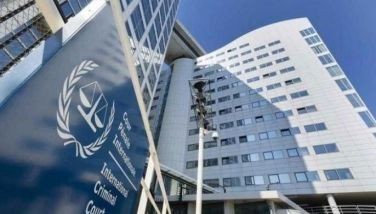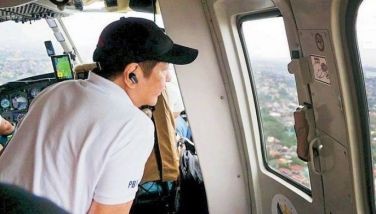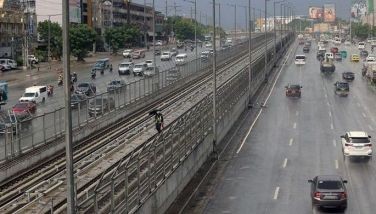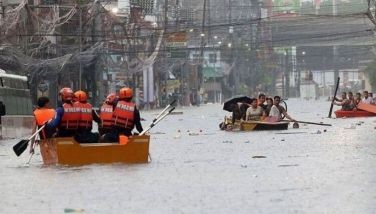China commits to help Philippine state media
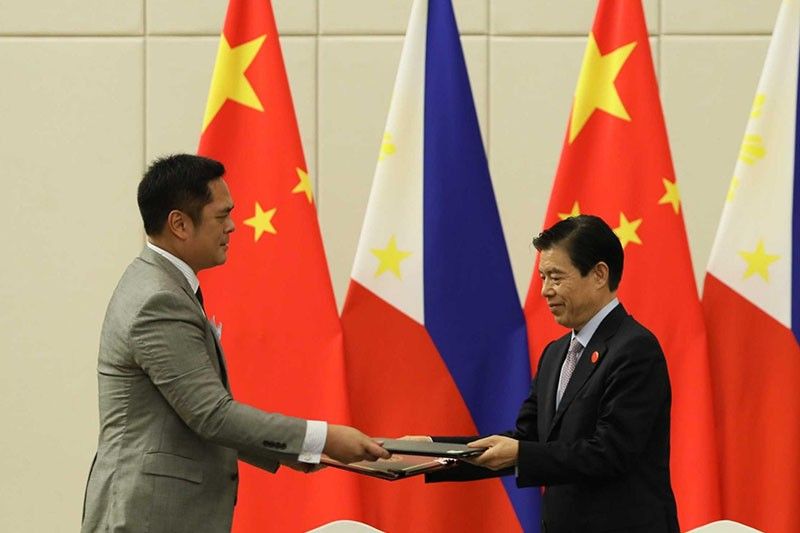
MANILA, Philippines — The Philippine government secured RMB 17 million (P140.8 million) worth of aid from the Chinese government to improve the country’s state media during President Rodrigo Duterte’s visit to China.
The Presidential Communications Operations Office and the Chinese Ministry of Commerce exchanged letters for broadcasting equipment in the presence of President Rodrigo Duterte and President Xi Jinping Tuesday.
In a press briefing Wednesday, PCOO Secretary Martin Andanar expressed his delight on the ally’s assistance.
“It is a very good indication that China is very committed to helping our government media in the Philippines improve its services,” he said.
Andanar also announced that there would be a media exchange program with China, even noting that Xi emphasized the importance of the media cooperation between his country and the Philippines.
“We all know that the Xinhua News Agency is one of the most successful news agencies in the world and the CCTV is also one of the largest broadcasting networks in the world; China Radio International also,” he said.
The PCOO chief added: “In terms of management, in terms of the technology that they are using, we, in the Philippine government media, have so much to learn from them.”
But the former newsreader recognized the “different ideologies and different paradigms in reporting” of the two nations.
‘Press freedom predator’
China is home to one of the world’s most restrictive media environments.
The ruling Communist Party of China maintains control over news reporting through direct ownership, accreditation of journalists, directives to media outlets and websites that guide coverage and harsh penalties for online criticism.
Media watchdog Reporters Without Borders described China’s Xi as the “leading censor and press freedom predator.”
“[Xi] is the instigator of policies aimed at complete hegemony over news coverage and the creation of an international media order heavily influenced by China,” it said.
Reporters Without Borders ranked China 176th of the 180 countries on its 2017 World Press Freedom Index.
A separate watchdog, Freedom House, said that China “has established near-complete control over the domestic media.”
There is also an ongoing crackdown that has led to the arrests of journalists.
According to the US-based Committee to Protect Journalists, 41 people were put behind bars for reporting or blogging as of December 2017. But Reporters Without Borders estimated a higher figure at 100.
Threatened press freedom
While the Philippine press has been touted as the freest and liveliest in Asia, it is also one of the most dangerous countries for the media.
According to the report of Reporters Without Borders, the Philippines is the deadliest country for journalists in Asia after four of five journalists targeted by gunmen were killed in 2017.
Figures from the CPJ showed that 42 journalists have been killed since 2007. The media watchdog ranked the country fifth in the 2017 Global Impunity Index.
CPJ also slammed the slow quest for justice for the 2009 Maguindanao massacre victims, among them 32 media practitioners. There has been no single conviction against the 197 suspects eight years after the brutal incident.
In the World Press Freedom Index released April 2017, the Philippines rose 11 places to 127th from 138th out of the 180 countries.
But Reporters Without Borders said that the “insults and open threats” against the media by Duterte, which it described as “another new strongman” do not bode well.
READ: Philippines is Asia's ‘deadliest country’ for journalists — RSF
“There are concerns that President Rodrigo Duterte’s subordinates and supporters could act on his violent threats against journalists who criticize abuses linked to the government’s war on drugs,” Freedom House also said.
The revocation of new website Rappler’s license and the barring of one of its reporters from covering the president’s events ignited a debate about the press freedom in the country.
Rights and media groups slammed the attacks against Rappler, one of the most critical media outfits under Duterte, calling these politically motivated and an attempt to silence criticisms of the government.
The Palace repeatedly maintained that the government’s moves are “not an attack on press freedom.”
READ: Rights groups on Rappler closure: Don't shoot the messenger
- Latest
- Trending















